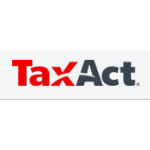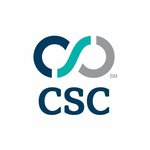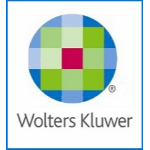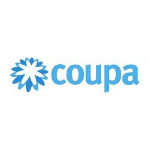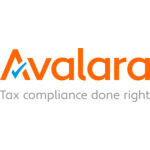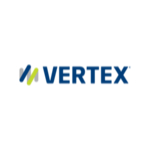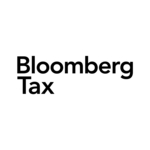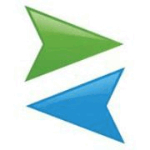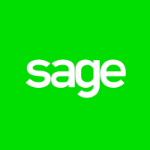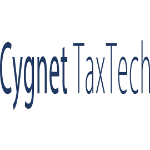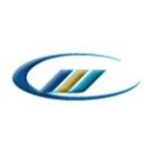TechnologyCounter provides genuine, unbiased real user reviews to help buyers make informed decisions. We may earn a referral fee when you purchase through our links, at no extra cost to you.
List of 15 Best Corporate Tax Software
Showing 1 - 15 of 26 productsKoinly is a solution for easy and accurate cryptocurrency tax reporting. With Koinly, managing your crypto transactions and tax calculations becomes effortless, saving you time and stress. Say goodbye to tedious spreadsheets and let Koinly handle you...Read Koinly Reviews
TurboTax, the leading online tax preparation software, takes the stress out of tax season. With its user-friendly interface and innovative technology, it simplifies the complex process of filing taxes. From simple returns to more complicated ones, Tu...Read TurboTax Reviews
TaxAct is a user-friendly, efficient tax preparation software that has been trusted by millions of individuals and businesses for over 20 years. With its advanced features interface, TaxAct simplifies the tax filing process and helps you save time an...Read TaxAct Reviews
CSC Corptax provides dynamic is a tax software solutions for businesses of all sizes. With its user-friendly interface technology, CSC Corptax simplifies the complex processes of tax preparation and compliance, allowing companies to streamline their...Read CSC Corptax Reviews
Wolters Kluwer - Kleos is a software designed to simplify legal practice management. With advanced features and user-friendly interface, Kleos streamlines tasks and enhances productivity, making it the go-to solution for legal professionals worldwide...Read Wolters Kluwer - Kleos Reviews
Coupa is a leading cloud-based spend management platform that helps organizations effectively manage their expenses, improve efficiency and drive business growth. With its user-friendly interface and powerful features, Coupa streamlines procurement,...Read Coupa Reviews
Avalara simplifies tax compliance for businesses of all sizes, helping them stay on top of constantly changing tax laws and regulations. Our innovative software streamlines the tax process, making it easier and more efficient for businesses to manage...Read Avalara Reviews
Vertex O Series is a solution for all your software needs. This powerful and innovative software provides unmatched performance and functionality to help streamline your business processes. With its user-friendly interface features, Vertex O Series i...Read Vertex O Series Reviews
Bloomberg Tax Leased Assets is a all-in-one solution for managing leased assets efficiently and effectively. With its advanced features and user-friendly interface, this software streamlines the leasing process and ensures compliance with evolving ta...Read Bloomberg Tax Leased Assets Reviews
inDinero is a and innovative financial software designed to streamline business operations and provide a clear overview of your companys financial health. With inDinero, managing finances has never been easier, giving business owners the freedom and...Read inDinero Reviews
Canopy the innovative software designed to elevate your business to new heights. With its user-friendly interface features, Canopy provides a seamless experience for managing your operations and maximizing efficiency. Say goodbye to the hassle of man...Read Canopy Reviews
Sage 50cloud provides a comprehensive desktop accounting solution that streamlines account management and allows for more focus on business growth. Their user-friendly Sage 50cloud Accounting software has greatly benefitted small businesses and entre...Read Sage 50cloud Reviews
UFileT2 is a tax preparation software specifically designed for Canadian corporations. With its user-friendly interface features, it simplifies the complex process of filing corporate taxes. From streamlining data entry to ensuring accuracy in calcul...Read UFileT2 Reviews
KSA e-Invoicing, the innovative invoicing software revolutionizing the way businesses handle their financial transactions. With its user-friendly interface features, KSA e-Invoicing streamlines the invoicing process, making it more efficient and accu...Read KSA e-Invoicing Reviews
Caseware Corporation Tax is a top software used by businesses for tax preparation and compliance, minimizing potential errors and ensuring maximum efficiency. This innovative solution is designed to simplify the complex process of corporation tax fil...Read Caseware Corporation Tax Reviews
- What Is Corporate Tax Software?
- Top Reasons Why Businesses Need Corporate Tax Software?
- What Are the Top Key Features of Corporate Tax Software?
- What Are the Top Benefits of Corporate Tax Software?
- What Are the Steps to Choose the Right Corporate Tax Software?
- What Are the Types of Corporate Tax Software for Different Industries?
- What Are the Technology Trends for Best Corporate Tax Software?
- What Are the Deployment Options for Corporate Tax Software?
What Is Corporate Tax Software?
Corporate tax software is a software application utilized by businesses to facilitate the precise and efficient preparation and submission of their tax returns. The objective of this process is to gather all essential papers, data, and information required by the government, effectively organize them, and provide accurate reporting of the company's financial activities for taxation purposes.
The use of an automated system assists business owners in maintaining accuracy, so enabling them to allocate their time toward other critical tasks. Corporate tax software is often required by companies due to the inherent complexity of their financial operations.
Through the utilization of this technology, individuals are capable of producing precise tax returns and promptly remitting payments to the governmental authorities. Furthermore, individuals have the option to maintain comprehensive documentation or streamline their business tax filing procedures, so enhancing efficiency and minimizing the likelihood of errors.
Corporate tax preparation software commonly incorporates many functionalities, including the ability to monitor deductions, compute income and costs, generate and submit tax returns, as well as manage and file requisite forms.
Additionally, the software possesses the capability to securely import and retain financial records and documents, hence facilitating the monitoring of the company's tax liability throughout a given period.
In essence, the utilization of corporate tax preparation software has the potential to diminish the temporal and material resources allocated by organizations towards their tax filing endeavors, concurrently facilitating adherence to governmental tax regulations.
Top Reasons Why Businesses Need Corporate Tax Software?
1. Automated Calculation of Tax Returns: The utilization of corporate tax software obviates the necessity of manual tax calculations, thereby guaranteeing precision and enhancing the efficiency of the filing procedure.
2. Ability to Plan and Track Tax Expenditures: Tax software enables firms to effectively manage and monitor their tax expenditures, while assuring adherence to pertinent regulatory reporting.
3. Real-time Data Integration: The integration of real-time data facilitates the continuous availability of up-to-date tax information for enterprises, thereby enhancing their ability to make well-informed decisions.
4. Easy Access to Tax Data: Businesses are able to conveniently retrieve their tax information and generate comprehensive reports on their tax obligations through the utilization of corporate tax software.
5. Compliance with Tax Regulations: Tax software plays a crucial role in facilitating firms' adherence to pertinent tax legislation, so safeguarding them against potential repercussions such as penalties and fines.
6. Automatic Data Backup: Corporate tax preparation software possesses the capability to generate automatic backups of all tax-related data, safeguarding firms against potential data loss and offering an additional sense of reassurance.
7. Time-saving Automation: The utilization of the best corporate tax software has the capacity to streamline and mechanize the entirety of the tax filing procedure, hence enabling organizations to conserve significant amounts of time and resources.
8. In-depth Business Analytics: Tax software facilitates the process for firms to acquire a deeper understanding of their operations, enabling them to discern strategies for enhancing their efficiency and achieving cost savings.
9. Reduction of Manual Errors: Tax software has the capacity to mitigate the occurrence of manual errors, thereby offering businesses the opportunity to enhance efficiency and save costs.
10. XML/EDI Support: The best corporate tax software packages provide XML/EDI functionality, enabling organizations to effortlessly engage in information exchange with other entities.
11. Secure Access from Anywhere: The utilization of corporate tax preparation software enables organizations to effortlessly access their tax data from any location through remote access capabilities.
12. Comprehensive Reporting: Tax software offers extensive reporting functionalities, facilitating organizations in the examination of their financial performance and strategizing for future endeavors.
13. Integrated Workflow Management: Corporate tax software offers a range of workflow management tools that enable firms to enhance the efficiency of their tax filing procedures and address many associated tasks.
14. Customization and 24/7 Support: Corporate tax software solutions provide organizations with the ability to customize their software and access round-the-clock support, enabling them to optimize their software usage and receive timely assistance as required.
15. Competitive Edge: By implementing efficient and automated procedures pertaining to taxation, firms can enhance their competitive advantage within their specific industry.
What Are the Top Key Features of Corporate Tax Software?
The top key features of corporate tax software include:
1. Automation: This technology streamlines laborious data collecting and data analysis processes, hence reducing the time needed for the completion of corporate tax filing.
2. Accurate Calculations and Processing: The software facilitates efficient and precise computation of various tax liabilities, encompassing income, payroll, and property taxes. Furthermore, it aids in guaranteeing precision through the automated verification of inputted data.
3. Flexible IRS Forms: This platform facilitates efficient and precise completion of essential IRS forms for users.
4. Document Management: This software aids in the organization and maintenance of several types of documents and records, including financial statements, depreciation schedules, and tax forms. Additionally, it ensures that the necessary filing deadlines are adhered to.
5. Tax Planning and Forecasting: This application offers valuable perspectives on forthcoming tax obligations and assists individuals in formulating more effective tax planning approaches.
6. Comprehensive Reporting: This software application produces a diverse range of comprehensive reports containing extensive information pertaining to tax liabilities, payment arrangements, and additional relevant data.
7. Compliance Management: The best tax filing software for small businesses automatically verifies adherence to tax standards for all filing obligations and guarantees that corporate taxes align with the norms set forth by the IRS and other tax authorities.
8. Dashboards and Visualizations: This tool facilitates users in conveniently visualizing data patterns and analyzing statistical information pertaining to corporate taxation.
9. Tax Remittance and Tracking: This system automatically establishes reminders for filing deadlines and assists users in monitoring payments and remittances directed towards the relevant government agency.
10. Integration with Accounting Systems: The best corporate tax software for small business has the capability to seamlessly connect with accounting platforms such as Quickbooks and Sage, facilitating the importation, analysis, and management of tax-related information.
What Are the Top Benefits of Corporate Tax Software?
1. Improved Accuracy: The primary objective of corporate tax software is to decrease the likelihood of errors arising from human calculations or data entry. The automation of the laborious tasks of calculation and data entry is implemented in order to guarantee precision.
2. Automation: Corporate tax preparation software streamlines the complete tax filing procedure, encompassing the computation of tax obligations, the preparation of pertinent documents, and the submission of those forms to the appropriate tax regulatory body.
3. Organized Data Storage: The best corporate tax software for small business effectively manages and organizes various tax-related data, including but not limited to tax filing status, transaction history, and deadlines. This enhances the efficiency and organization of tax filing.
4. Time and Money Savings: Corporate tax preparation software is very efficient in terms of time and cost savings, as it automates calculations and data input processes, hence eliminating the need for laborious human computations that can consume significant amounts of time, sometimes spanning several days.
5. Compliances: Corporate tax software is designed to maintain up-to-date records of current tax legislation and regulatory requirements, so ensuring that the organization remains well-prepared for tax filing obligations on an ongoing basis.
6. Risk Minimization: The utilization of the best tax filing software for small business serves to mitigate the risk of audit and penalties resulting from erroneous filing or the provision of wrong information. Regular financial reporting offers a comprehensive and transparent overview of the company's fiscal health, facilitating the identification of any variations or deviations.
What Are the Steps to Choose the Right Corporate Tax Software?
1. Identify the specific needs of your business: It is imperative to take into account the distinct demands of one's firm and its operational processes.
The aforementioned factors encompass the nature of filing obligations, the duration within which filings must be completed, the quantity of invoices that have been processed, the extent of personnel engaged in the procedure, and the tally of employees inside the organization.
2. Research corporate tax software: This task involves comprehending the characteristics and advantages of every corporate tax preparation software now accessible in the market, and conducting a thorough evaluation of these software options in relation to the specific requirements of your organization.
Conduct a thorough analysis of reviews to ascertain the key aspects that hold the utmost significance for your organization.
3. Contact responsible personnel: It is advisable to engage in a conversation with a sales representative in order to obtain detailed information about each software and to ensure that any inquiries you may have are adequately addressed. Requesting recommendations is crucial in order to verify the dependability of the program being utilized.
4. Analyze price and features: Conduct a comprehensive analysis of the many features and pricing structures associated with each prospective program, then undertaking a comparative evaluation of these aspects. Evaluate the optimal characteristics for your organization and ascertain whether the associated cost aligns with your financial constraints.
5. Test the software: Conduct a trial of the program that aligns with your specified criteria and place emphasis on evaluating its user-friendliness. It is imperative to ensure that the program possesses a high degree of user-friendliness, hence obviating the need for further assistance from IT professionals or the acquisition of costly hardware.
6. Make decision: Once an extensive investigation has been conducted, it becomes possible to arrive at an informed selection regarding the best corporate tax software for small business. It is imperative to uphold a precise filing system in order to streamline filing procedures and achieve long-term cost savings.
What Are the Types of Corporate Tax Software for Different Industries?
There are various types of corporate tax software that can be tailored to meet the needs of different industries. The most commonly used include:
1. Multi-national Tax Software: Multinational corporations with geographically dispersed offices employ this particular form of the best corporate tax software for small business. The purpose of its design is to enhance the efficiency of cross-border transactions and effectively manage the complexities associated with multinational tax matters.
2. Industry Specific Software: This software is specifically developed to cater to the tax computation requirements of many industries, including but not limited to oil and gas corporations, banking institutions, and chemical and industrial enterprises.
3. Strategic Business Planning Software: Companies utilize the best tax filing software for small business to formulate and implement strategies according to their financial objectives. This tool facilitates the examination of tax consequences associated with various decision scenarios and enables the simulation of the corresponding tax effects.
4. Tax Planning Software: This software application facilitates strategic planning for businesses by providing an analytical solution that evaluates the potential effects of various tax alternatives. The software offers a range of graphic budgeting features that aid in the effective management of a company's financial planning.
5. Data Analysis Software: The best tax filing software for small business offers companies the ability to present a comprehensive overview of their financials and records, enabling the identification of any irregularities and trends. This particular software has the capability to identify regions that may give rise to conflicts.
6. Risk Mitigation Software: The best corporate tax software for small business solutions offers firms a comprehensive perspective of their corporate tax profile, thereby mitigating the risk of non-compliance. Additionally, this practice aids in the identification of prospective deductions and credits that can effectively mitigate the corporation's tax liability.
What Are the Technology Trends for Best Corporate Tax Software?
The technology trends for best corporate tax software are as follows:
1. Automation: The automation of corporate tax software is experiencing a notable surge, as a greater portion of the filing procedure is being executed by the software in comparison to previous periods. This practice facilitates the mitigation of errors and expedites the process of filing.
2. Cloud-based software: Cloud-based software facilitates convenient and safe access, updating, and storage of tax information for organizations.
3. Mobility: There is a growing trend in the utilization of tax filing and reporting software that is compatible with mobile devices for business tax purposes. This feature enhances the convenience of accessing and effectively managing tax-related information while on the move.
4. Artificial Intelligence: The utilization of artificial intelligence (AI) in corporate tax preparation software is seeing a growing trend, as it enables the automation of many operations, hence enhancing the precision of tax reports.
5. Data Security and Compliance: The significance of data security has increased significantly in the context of tax filing, leading to the development of corporate tax software aimed at ensuring organizations' adherence to data security rules and regulations.
What Are the Deployment Options for Corporate Tax Software?
The deployment possibilities for corporate tax software are diverse and contingent upon the specific program in question. These alternatives encompass on-premise installation, cloud-hosted services, and software as a service (SaaS).
1. The process of on-premise installation involves physically installing the tax software onto the computers and servers of the company.
2. In contrast, cloud-hosted services refer to the situation where a vendor hosts and manages the software on their servers that are based on the cloud.
3. Lastly, software-as-a-service (SaaS) is a subscription-based model that allows customers to access the software via the internet.


